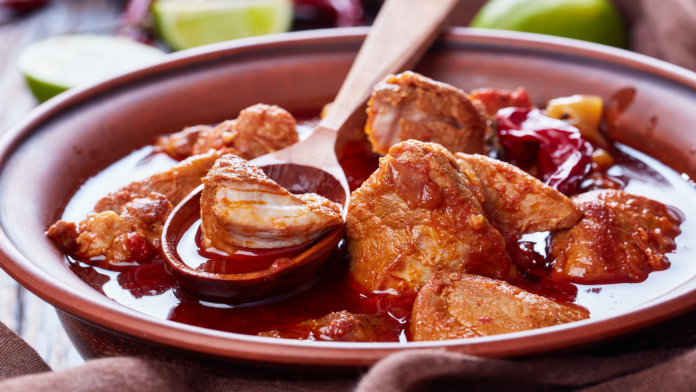The Bureau of Philippine Standards of the Department of Trade and Industry (DTI-BPS) has established BPS/TC 92, a committee, to standardize Filipino Dishes. They will produce Philippine National Standards (PNS) for popular Filipino dishes like Adobo, Sinigang, Lechon, and Sisig, taking into account the wide range of cooking techniques used across the country.
On May 11, 2021, BPS/TC 92 has started proposing a PNS for Adobo with “Kulinarya: A Guidebook to Philippine Cuisine” acting as the primary source of information for constructing a complete guide to preparing and cooking Adobo, a Filipino national dish.
BPS/TC 92 Chairperson Chef Glenda Barretto, founder of Via Mare Corporation, and Vice-Chairpersons Chef Myrna Segismundo and Chef Raoul Roberto Goco from the Food Writers Association of the Philippines (FWAP) and Hotel and Restaurant Association of the Philippines (HRAP), respectively, lead the standards development process. They are joined by representatives from the University of the Philippines Diliman – College of Home Economics (UPD-CHE), Philippine Chamber of Food Manufacturers, Inc. (PCFMI), Philippine Association of Meat Processors, Inc. (PAMPI), Department of Science and Technology – Industrial Technology Development Institute (DOST-ITDI), Philippine Association of Food Technologists, Inc. (PAFT), Le Toque Blanche (LTB) Chefs Association, Asia Society Philippines, National Commission for Culture and the Arts, and Philippine Daily Inquirer, Inc.
With a variety of cooking methods for Philippine Adobo published online by food writers, bloggers, and vloggers, BPS/TC 92 seeks to standardize the cooking technique for the well-known Filipino dish.
According to Chef Myrna Segismundo, “There will be different approaches and opinions [about cooking Philippine Adobo]. As long as I have, say one to three steps, it’s this recipe. Anything else you add to it is a variation to the cooking technique.”
Myriad varieties of Philippine Adobo, such as those with laurel, pepper, soy sauce, vinegar, coconut cream/milk, atsuete, and other ingredients including various methods such as braising and stewing, demonstrate the richness of Filipino culture.
The question, “How can we say that this is the basic Philippine Adobo?” serves as the main guide for BPS/TC 92 members in determining the common denominator among all known methods of cooking it. In line with BPS/TC 92, benchmarking the cooking technique for Philippine Adobo will help preserve the country’s cultural identity, regardless of the changes made to it.
The move to standardize Filipino dishes generated a multitude of online responses from many Filipinos.
The Department of Trade and Industry said the proposed national standard for adobo is meant “to define what we will promote internationally” so the dish won’t be confused for something else.
This, DTI said, was not supposed to “redefine” the adobo Filipinos already love. pic.twitter.com/BhvN5WsEPL
— Roy Canivel (@roycanivel_inq) July 11, 2021
tigilian ng DTI ang kalokohan nila. alam nilang may iba't ibang pagluluto ng adobo sa Pilipinas, ano ang gagamitin nyo 'to promote the dish internationally'? pag-aawayin pa ang mga rehiyon at probinsiya kung ano ang dapat maging Filipino adobo? SAYANG ANG BADYET! #MostIncompetent
— Pinoy si Wowie (@pinoysiwowie) July 11, 2021
…"aims to standardize the cooking technique for the well-known Filipino dish, especially given 'various cooking methods for Philippine adobo published online by food writers, bloggers, and vloggers.'"
No, you can't standardize something as diverse as adobo, no matter what… https://t.co/9U9pn6qAuG
— Matthew G. Yuching (楊子峰) (@JMatthewYuching) July 10, 2021
BPS Director Neil Catajay emphasized that developing standards for Filipino dishes will pave the way for a more distinguished Filipino food culture while also establishing a common ground for food businesses.
“Standardizing the basic cooking technique for Philippine Adobo will assist ordinary citizens, foodies, and food businesses in determining and preserving the authentic Filipino Adobo taste,” Catajay said.
BPS/TC 92 intends to include popular Filipino dishes like Sinigang, Lechon, and Sisig in their work program. Once available, the draft PNS on Philippine Adobo will be disseminated nationwide for review and comment by relevant parties.


